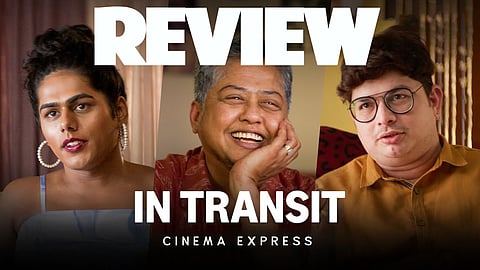In Transit Series Review: Hurried narration subdues the charm of this episodic documentary
In-Transit(3 / 5)
It was during the making of the second season of their web series Made In Heaven that Zoya Akhtar and Reema Kagti stumbled upon diverse stories of trans people. They were developing the character of Meher from the show, which was played by trans actor Trinetra Haldar Gummaraju, and thought of interviewing people from the community in order to get a better sense of their lives. In Transit was born out of these stories. The four-part docu-series, backed by Zoya and Reema's Tiger Baby Films, chronicles the experiences of people who identify themselves beyond the binaries of gender and sexuality. These are people who have seen it all, from being bullied in school for exhibiting ‘feminine traits’ to being thrown out of their house for putting on make-up. These are stories of hope and resilience; of bodies being reclaimed from eyes of prejudice; of lives led with a stirring defiance.
Like the story of Madhuri Sharma, a trans woman living with her husband Ajay in Mumbai. Assigned male at birth and named Prakash, Madhuri never felt like a man from inside. There is a touch of power in her voice as she recollects her early struggles of discovering her body and coming to terms with it. She later breaks down as she talks about the 'cost' of wearing the sari. “Is sari ke liye maine bahut kuch chhoda hai. Sab chhut gaye, delete hogaye (For this sari, I have left everything behind. Everyone got deleted from my life),” she says, talking about being abandoned by her family. It was only her mother who understood Madhuri. But with her death, she lost her last piece of hope.
Director: Ayesha Sood
Streamer: Amazon Prime Video
On the other hand, Rumi shared a complicated relationship with his mother. Born as a female, Rumi was forced to learn classical music by his mother. After training for a major part of his life in the voice of a woman, Rumi transitioned to a man. Now, with the changes that the surgery brought in his body, Rumi seemed to have lost his voice. It is through more such diverse stories told by the people that the show gives us a small peek into their lives. It is important documentation, acting as a bridge to shape our understanding about experiences we know little about.
However, it’s the structure which doesn’t quite let the weight of these experiences stay with us. With over nine individual stories unfolding through one-on-one interviews, the series rarely lingers long enough on any one person. Just when we are rooting for Madhuri as she speaks of her ‘rebirth’, we move to another person’s story that was left in between. The intercuts become tiring after a point. It is difficult to follow through. There is a sense of being in a hurry, of telling more and staying less. Some of the anecdotes being shared are also recreated with colourful animations, but they become a bit too literal at times. When Aryan, a 35-year-old trans man, talks about flying free like a bird and being flexible like a cloud, we see the same imagery with a touch of vivid colours, drawn with finesse. Does it elevate the effect of what is being said? Not really.
There are some loose ends too. The story of Siddharth Gope and his fight for love finds a rather quick resolve. A Dalit trans activist being assaulted is mentioned at the end of one episode and forgotten to be reflected more on later. These are some rough edges that Ayesha Sood’s show traverses upon. There is a lot to cover which doesn’t necessarily translate in four short episodes. It often just feels like a vehicle of representation that Tiger Baby wants to drive along. What also defeats the purpose is not having the show marketed as some of Prime Video’s other slates. Type its name on Google and there’s little that reflects. It’s as if there are forces necessitating the stigma, indifference and hesitance to be open about what the show believes in. The storytelling feels reserved. The celebration starts to seem perfunctory.
Despite these limitations, it’s the lived experiences that stand out. The vulnerabilities speak loudest. And perhaps, that’s the quiet power of In Transit. For even when the storytelling stumbles, the stories don’t. They linger, asking not just to be seen, but to be remembered. Because what’s truly in transit here is not just identity, but empathy.

